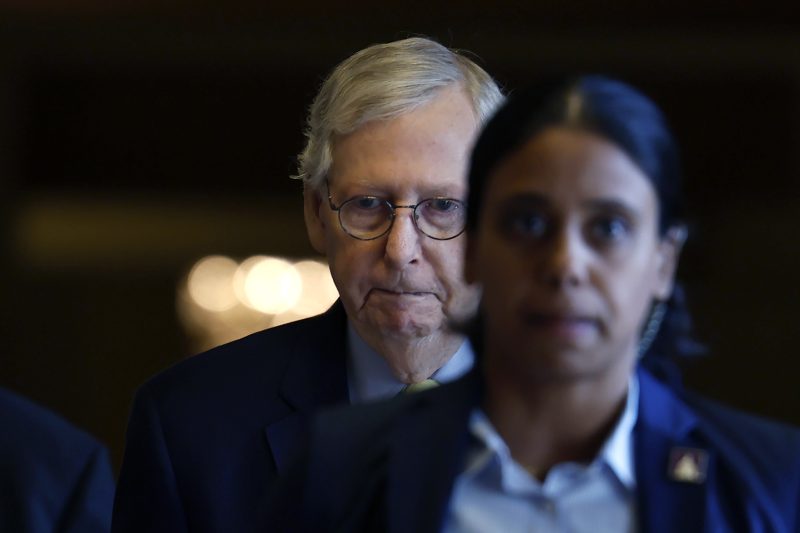Senate Minority Leader Mitch McConnell (R-Ky.) made his first appearance Monday back in the chamber after he suffered injuries last month that caused a nearly six-week absence.
During remarks on the Senate floor Monday afternoon, McConnell, 81, appeared well rested and said he was “very happy to be back.” McConnell had been absent since he fell and suffered a concussion and a broken rib at a private dinner at a Washington hotel in early March.
“Suffice it to say, this wasn’t the first time that being hardheaded has served me very well,” McConnell joked.
His voice shaky at times, McConnell quickly pivoted to attacking Democrats and criticizing the Biden administration on debt ceiling negotiations.
McConnell’s fall sparked questions about his tenure as the longest-serving Senate leader. For two weeks after his hospitalization, McConnell did not speak directly to anyone on his leadership team, prompting speculation about the extent of his injuries. Republican leaders who eventually spoke to McConnell later said he sounded “sharp” and “eager” to get back to the Senate, but for weeks there was uncertainty over when McConnell might return.
The Kentucky Republican was released from an inpatient physical therapy facility last month, about 2½ weeks after his fall, but worked from home for several days leading up to the Senate’s lengthy Easter recess. In his absence, he missed several key votes, including one to pass a bill to revoke decades-old authorizations for use of military force for the Iraq and Persian Gulf wars. McConnell had been steadfastly opposed to the bill.
Senate Majority Leader Charles E. Schumer (D-N.Y.) welcomed McConnell back, along with Sen. John Fetterman (D-Pa.), who also returned to the Capitol after a lengthy absence. Fetterman checked himself into Walter Reed National Military Medical Center on Feb. 15 to receive treatment for clinical depression and remained hospitalized for weeks.
On Monday, Senate Majority Whip Richard J. Durbin (D-Ill.) said he had spoken with Fetterman by Zoom several weeks ago and was “heartened” by his message and demeanor.
“He had the courage to step up and ask for help when he faced depression, to seek professional medical advice, and I could tell by his responses and the tone of his voice that that decision had already made the difference in his life for the better,” Durbin said.



























